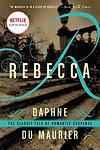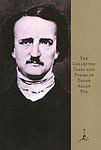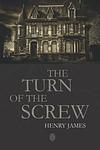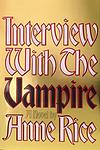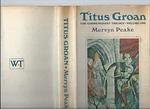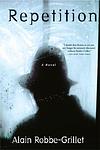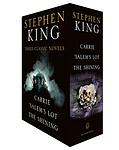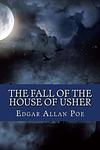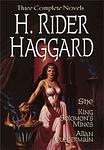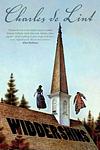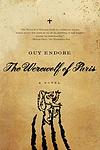The Greatest "Speculative Fiction, Gothic" Books of All Time
Click to learn how this list is calculated.
This list represents a comprehensive and trusted collection of the greatest books. Developed through a specialized algorithm, it brings together 300 'best of' book lists to form a definitive guide to the world's most acclaimed books. For those interested in how these books are chosen, additional details can be found on the rankings page.
Genres
Speculative fiction is an umbrella genre encompassing narrative fiction with supernatural or futuristic elements. This includes genres such as science fiction, fantasy, horror, supernatural fiction, superhero fiction, utopian and dystopian fiction, apocalyptic and post-apocalyptic fiction, and alternate history. The unifying factor of speculative fiction is its departure from the narrative constraints of reality, exploring imaginative and often profound questions that challenge our understanding of the world and our place within it. These stories often delve into themes like the human condition, social commentary, and the exploration of philosophical and ethical dilemmas through the lens of the fantastical or the yet-to-be-possible. By pushing the boundaries of the known, speculative fiction invites readers to consider the myriad possibilities of existence and the potential consequences of our actions in worlds that are, at once, vastly different from and eerily similar to our own.
Gothic literature is a genre that combines elements of horror, death, and romance, often set against dark, brooding landscapes and decaying architecture, such as haunted castles or monasteries. Originating in the late 18th century, it delves into the human psyche, exploring themes of madness, the supernatural, and the sublime. Classic Gothic novels often feature a sense of dread and the unknown, with characters confronting their deepest fears and societal taboos. The atmosphere is typically heavy with mystery and melancholy, and the narrative may include ghosts, monsters, or otherworldly beings. Gothic fiction seeks to evoke a visceral emotional response, such as fear or awe, and often contains a critical look at the time's social, cultural, and moral attitudes. Notable authors in this genre include Ann Radcliffe, Mary Shelley, Edgar Allan Poe, and Bram Stoker, whose works have left an indelible mark on literature and continue to influence modern horror and suspense.
Countries
Date Range
Reading Statistics
Click the button below to see how many of these books you've read!
Download
If you're interested in downloading this list as a CSV file for use in a spreadsheet application, you can easily do so by clicking the button below. Please note that to ensure a manageable file size and faster download, the CSV will include details for only the first 500 books.
Download-
1. Frankenstein by Mary Shelley
This classic novel tells the story of a young scientist who creates a grotesque but sentient creature in an unorthodox scientific experiment. The scientist, horrified by his creation, abandons it, leading the creature to seek revenge. The novel explores themes of ambition, responsibility, guilt, and the potential consequences of playing God.
-
2. Rebecca by Daphne du Maurier
A young woman marries a wealthy widower and moves into his large English country house. She quickly realizes that the memory of her husband's first wife, Rebecca, haunts every corner of the estate. The housekeeper's obsessive devotion to Rebecca and the mysterious circumstances of her death continue to overshadow the second wife's attempts to make a happy life with her husband. As secrets about Rebecca's life and death are revealed, the new wife must grapple with her own identity and place within the household.
-
3. Dracula by Bram Stoker
This classic horror novel tells the story of Count Dracula's attempt to move from Transylvania to England so that he may find new blood and spread the undead curse, and of the battle between Dracula and a small group of people led by Professor Abraham Van Helsing. The narrative is composed of journal entries, letters, and telegrams written by the novel's protagonists, providing different perspectives on the gruesome events unfolding. The book touches on themes of sexuality, gender roles, and the clash of modern science with traditional superstition.
-
4. The Complete Tales and Poems of Edgar Allan Poe by Edgar Allan Poe
This collection brings together all of the author's most famous works, including poems, short stories, and novellas. Known for his macabre and gothic storytelling, the author's works are filled with themes of death, love lost, and human frailty. Notable inclusions are the haunting poem "The Raven," the chilling stories "The Tell-Tale Heart" and "The Fall of the House of Usher," and his only complete novel, "The Narrative of Arthur Gordon Pym."
-
5. The Strange Case of Dr. Jekyll and Mr. Hyde by Robert Louis Stevenson
This classic novel explores the duality of human nature through the story of a respected London doctor who creates a potion that transforms him into a sinister, violent alter ego. As the doctor increasingly loses control over when the transformations occur, his alter ego's evil deeds escalate, causing havoc in the community. The narrative is a chilling exploration of humanity's capacity for evil and the struggle for individuals to reconcile their public personas with their private desires.
-
6. The Turn of the Screw by Henry James
A young governess is hired to care for two children at a remote English estate. However, she soon becomes convinced that the grounds are haunted by two former employees who have taken control of the children. As she fights to free the children from these apparitions, the line between reality and her own fears becomes increasingly blurred, leading to a chilling and ambiguous conclusion.
-
7. The Haunting of Hill House by Shirley Jackson
The book is a chilling tale that revolves around a group of four individuals who decide to stay in a notoriously haunted mansion to conduct a paranormal investigation. The main character, a shy, reclusive woman with a troubled past, becomes increasingly unstable as she experiences terrifying phenomena and becomes obsessed with the house. As the supernatural events escalate, the lines between reality and imagination blur, leading to a shocking and tragic conclusion.
-
8. The Private Memoirs and Confessions of a Justified Sinner by James Hogg
Set in 18th century Scotland, the novel explores the psychological downfall of a deeply religious man who believes he is predestined for salvation and thus justified in committing a series of murders. He is driven to this path of self-destruction by a mysterious stranger who may be either a devilish tempter or a manifestation of his own deranged mind. The book serves as a critique of religious fanaticism and a chilling exploration of the dark side of human nature.
-
9. Melmoth the Wanderer by Charles Robert Maturin
"Melmoth the Wanderer" is a gothic novel that tells the story of John Melmoth, a man who sells his soul to the devil for 150 extra years of life, and spends that time wandering the earth in search of someone who will take over the pact for him. The narrative is a complex series of nested stories, told by many different characters, and it explores themes of guilt, redemption, and the inherent evil of mankind.
-
10. Gormenghast by Mervyn Peake
Set in a vast, crumbling castle named Gormenghast, the story follows the life of Titus Groan, the heir to the Earl of Groan. The narrative explores the complex, rigidly structured society within the castle and the struggles and intrigues of its eccentric characters, particularly the scheming kitchen boy Steerpike. As Titus grows older, he begins to rebel against the stifling traditions of Gormenghast, setting the stage for a dramatic clash between the old and the new.
-
11. Interview with the Vampire by Anne Rice
The novel is a dark and atmospheric tale of a centuries-old vampire, Louis, who shares his life story with a young reporter. He recounts his transformation into a vampire by the charismatic and ruthless Lestat, their complex relationship, and their encounters with other supernatural beings. The narrative explores themes of immortality, loss, identity, and the human desire for love and companionship. The book is known for its rich detail and its philosophical and historical depth.
-
12. Titus Groan by Mervyn Peake
The novel is a gothic fantasy set in the bizarre and intricate world of Gormenghast Castle, home to the ancient and eccentric Groan family. The story begins with the birth of Titus Groan, the seventy-seventh Earl, who stands to inherit the castle and its strange traditions. The narrative follows the castle's eccentric characters and their bizarre rituals, including the ambitious kitchen boy, Steerpike, who seeks to manipulate the castle's traditions for his own gain. It's a dark and surreal exploration of ritual, power, and madness.
-
13. The Monk by Matthew Lewis
"The Monk" is a gothic novel that explores the tragic downfall of a virtuous and respected monk who succumbs to temptation and sin. The protagonist is lured into a world of lust, greed, and pride by a woman who is actually Satan in disguise. His moral decay leads to a series of horrific events including murder, incest, and witchcraft. The novel serves as a cautionary tale about the dangers of excessive pride and the destructive power of unchecked desire.
-
14. Salem's Lot by Stephen King
In a small town called Salem's Lot, a writer returns to his childhood home to find that the town is being plagued by a mysterious evil force. As the residents slowly succumb to the darkness, a group of unlikely heroes must band together to fight against the ancient and powerful vampire who is responsible for the town's descent into chaos. With a chilling atmosphere and intense suspense, this novel explores the themes of fear, loss, and the battle between good and evil.
-
15. The Castle of Otranto: A Gothic Story by Horace Walpole
"The Castle of Otranto: A Gothic Story" is a novel set in a medieval Italian castle and is considered the first gothic novel. The story revolves around the tyrannical Prince Manfred, who is determined to secure his family's reign in Otranto, despite the fact that his sickly son is killed by a giant helmet on his wedding day. The novel is filled with supernatural elements, including moving portraits, a bleeding statue, and a ghostly knight, as Manfred desperately tries to marry his late son's bride, leading to a series of tragic events. The novel is known for its exploration of the conflict between medieval and renaissance values, and its influence on the gothic literature genre.
-
16. Uncle Silas by Sheridan Le Fanu
"Uncle Silas" is a classic Gothic novel set in Victorian England that follows the story of a young, naive heiress who is left in the care of her mysterious and seemingly sinister Uncle Silas after her father's death. As she navigates her new life in his decrepit mansion, she uncovers dark family secrets, and begins to suspect her uncle may have ulterior motives. The novel explores themes of innocence, corruption, and the nature of evil, all set against the backdrop of a suspenseful and eerie atmosphere.
-
17. The Bloody Chamber And Other Stories by Angela Carter
"The Bloody Chamber and Other Stories" is a collection of short stories that reimagines and deconstructs traditional fairy tales. The narratives are filled with strong female characters, sexual exploration, and violent and gothic themes. Each story presents a unique spin on classic tales, such as Little Red Riding Hood, Beauty and the Beast, and Bluebeard, challenging the typical gender roles and expectations found in the original stories.
-
18. The Phantom of the Opera by Gaston Leroux
The book tells the story of a beautiful soprano at the Paris Opera House named Christine Daaé who becomes the obsession of a mysterious, disfigured musical genius living in the subterranean labyrinth beneath the opera house. Known as the Phantom, he terrorizes the opera company to compel them to keep giving roles to Christine, whom he tutors in secret. The tale unfolds with love, jealousy, and violence, culminating in a dramatic conclusion.
-
19. The Fall of the House of Usher by Edgar Allan Poe
"The Fall of the House of Usher" is a chilling tale of a visit to a friend's decaying mansion, where the visitor witnesses strange events and learns about the Usher family's curse. The story is filled with eerie incidents, including the illness of the lady of the house, her subsequent death and entombment in the family vault, and her terrifying reappearance. The story culminates in the literal and metaphorical crumbling of the Usher house, symbolising the end of the cursed Usher lineage.
-
20. She by H. Rider Haggard
The novel is a classic adventure tale set in a lost African civilization, revolving around a beautiful and immortal queen who has the power to kill at will and is known only as "She". The story follows two men who discover her hidden kingdom while on an expedition. The queen believes one of them to be the reincarnation of her long-lost love and tries to win him over while the other man falls in love with her. The narrative explores themes of power, immortality, and love.
-
21. The Pit and the Pendulum by Edgar Allan Poe
In this classic tale of suspense and horror, a man is sentenced to death by the Spanish Inquisition and trapped in a dark, seemingly inescapable chamber. He faces various tortures, including the threat of a slowly descending pendulum blade and the terror of a pit in the center of his cell. As he uses his wits to survive, he experiences the psychological torment of impending doom and the physical pain of his dire situation.
-
22. Widdershins by G. Oliver Onions
"Widdershins" is a gripping psychological thriller that follows the life of a troubled young woman named Alice. Haunted by a traumatic childhood event, Alice finds herself drawn into a mysterious world of dark secrets and supernatural occurrences. As she delves deeper into the enigmatic past of her family, Alice must confront her own demons and unravel the truth before it consumes her. With its atmospheric setting and complex characters, "Widdershins" is a chilling tale of suspense and self-discovery.
-
23. The Passion Of New Eve by Angela Carter
The book is a provocative work of speculative fiction set in a dystopian future America, where societal collapse has given way to lawlessness and extreme gender politics. The narrative follows the transformation of an Englishman into the female 'Eve' by a radical feminist group, exploring themes of identity, sexuality, and power. As Eve navigates a surreal landscape populated by emblematic characters, including a manipulative surgeon and a mythic film star, the story delves into the fluidity of gender and the construction of femininity, challenging the reader's perceptions of normative gender roles and the nature of desire.
-
24. The Manuscript Found in Saragossa by Jan Potocki
"The Manuscript Found in Saragossa" is a complex, multi-layered narrative that revolves around a young officer who discovers an ancient manuscript during the Napoleonic Wars. The manuscript contains a series of interwoven stories that span across time and space, featuring a range of characters including gypsies, bandits, and noblemen. These tales explore themes of philosophy, morality, and the supernatural, all while offering a fascinating glimpse into 18th-century Spanish culture.
-
25. The Werewolf Of Paris by Guy Endore
"The Werewolf of Paris" is a gripping and chilling tale set in 19th-century France, exploring the life of a tormented werewolf. The story follows the protagonist's journey as he navigates his dual nature, torn between his human desires and the uncontrollable beast within. Filled with suspense, horror, and a deep exploration of the human psyche, this haunting novel delves into themes of identity, morality, and the eternal struggle between good and evil.
Reading Statistics
Click the button below to see how many of these books you've read!
Download
If you're interested in downloading this list as a CSV file for use in a spreadsheet application, you can easily do so by clicking the button below. Please note that to ensure a manageable file size and faster download, the CSV will include details for only the first 500 books.
Download
